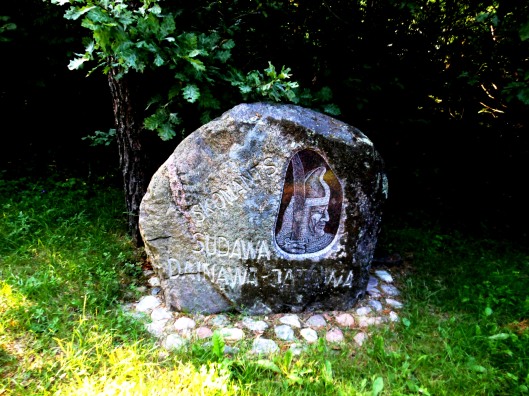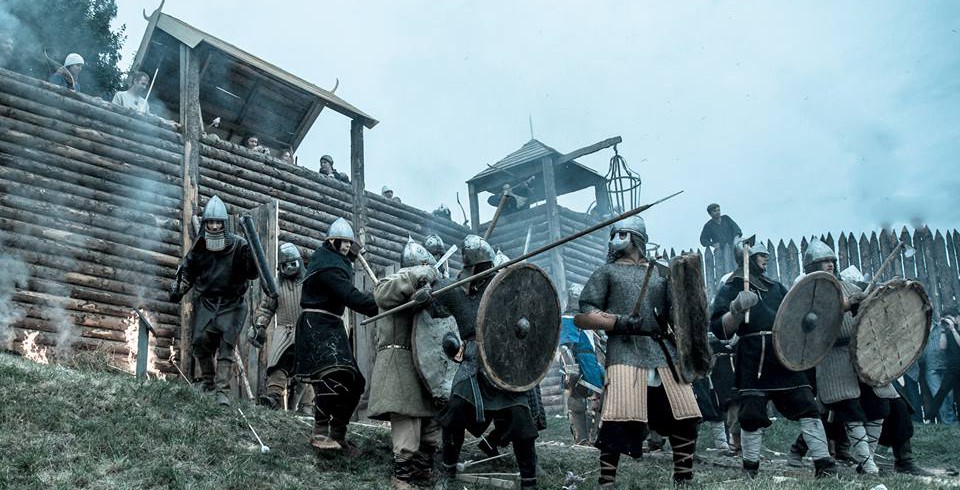Tags
Alytus, Baltics, crusader, heritage, History, Jotvingiai, Lithuania, Pagan, Poland, punskas, sudovian, tribe, Warriors, Yotvingian

All the chronicles’ writers and historians would usually hide the atrocities of their rulers. The ruler was their only sponsor and judge. The history is written by winners. If we look at the Rome Empire, we would discover how treacherous and power hungry they were. However all the gains from raiding and pillaging were called trophies. Can the destruction of the Yotvingians and stealth of their treasures and territories be called trophies as well?
I was one of those unfortunates who experienced the cruelty of Soviet Union and their human beings destruction machines – lagers. When I escaped I instantly went home to honour what’s left from my ancestors – the Yotvingians. I’ve visited their burial mounds, graveyards and settlements. Unfortunately there was no freedom in my homeland so I’ve tried to escape to the West. Unsuccessfully.
In prison I’ve met a scientist, well at least he thought he was one. He came here to visit his homeland from Spain but he was not allowed to cross the border again. He was unfortunate like me. That scientist claimed he knows much more than other prisoners so I asked him about the tragedy of Yotvingians. He started blushing and told me:
– All Yotvingians died out during the plague!..
– And what proves that? Some Abracadabra chronicles? – I asked and added – The truth is far from that…
“The scientist” did not get the insult here.
After I was released from prison, I’ve found a job and every year I’ve visited Yotvingian burial mounds. I was interested in everything related to the Yotvingians and their past. Jaskaniai family had contributed to research this theme a lot. Danuta Jaskanis had encouraged to explore the graveyards of Yotvingians. She also discovered a lot of valuable archeological artefacts such as a millstone, farm tools, an axe, a grating, a flint, a fishing float, clay dishes, plenty of different jewelry pieces (necklaces, beads, scarves, pins, cuirass, pectorals, bracelets, buttons and many other).
I’ve visited all exhibitions and read all materials available. There were more people interested in the topic especially in Sūduva and Alytus, where they published a book about Yotvingian history and their way of living before other Baltic tribes emerged.
It is highlighted that Yotvingians are extremely hardworking. One of the most unbiased historians Tacitus in his “Germania” wrote: “Yotvingians harvest grains much more heartily than lazy Germanic peoples.” In these times Yotvingians lived even more closely to each other. Their hard working and prudence nature is mentioned even by Ruthenian looters: “The next morning they [Ruthenian warriors] marched forward, burning their lands and seizing castles. And then they stopped at Karkavičiai village. They were amazed that such a big army, their horses and the warriors themselves could not manage to eat all the goods they had in the village.” Ruthenian looters were surprised how wealthy Yotvingians were. Ruthenian army were used to raiding other lands therefore their psychopathological genesis would not allow them to adapt to more traditional society structure. That is why Yotvingian prudence was such a big surprise for them.
Peter of Dusburg often mentions Yotvingian brutality however at times he mentions their honesty: “They’ve always lived in peace with their neighbours even Christians. They allow them to pray for their god and don’t disturb them at all.” Peter of Dusburg also wrote: “Sudovians (Yotvingians) are the most honourable of all, they outstand others with their noble traditions, wealth and power.”
Those who state that Yotvingians died out during the plague are lying. So all others remained? Jan Dlugos has a weird explanation for the extinction of the Yotvingians too: “Yotvingians are extremely tall and warlike people. Their desire for glory is so strong, they want to be immortalised in the memory of their people, that ten of them would fight a hundred and comfort themselves with only one hope. They hope that after their death their people will worship them and their brave deeds in the songs.”
Such statement makes no sense because only every tenth person went to war. They’ve left children at home who would create families in the future. And as for Skomantas, no matter how hard everyone tried to bury him but he remains in the myths, legends and the pages of history.
Vytautas Rėkus
